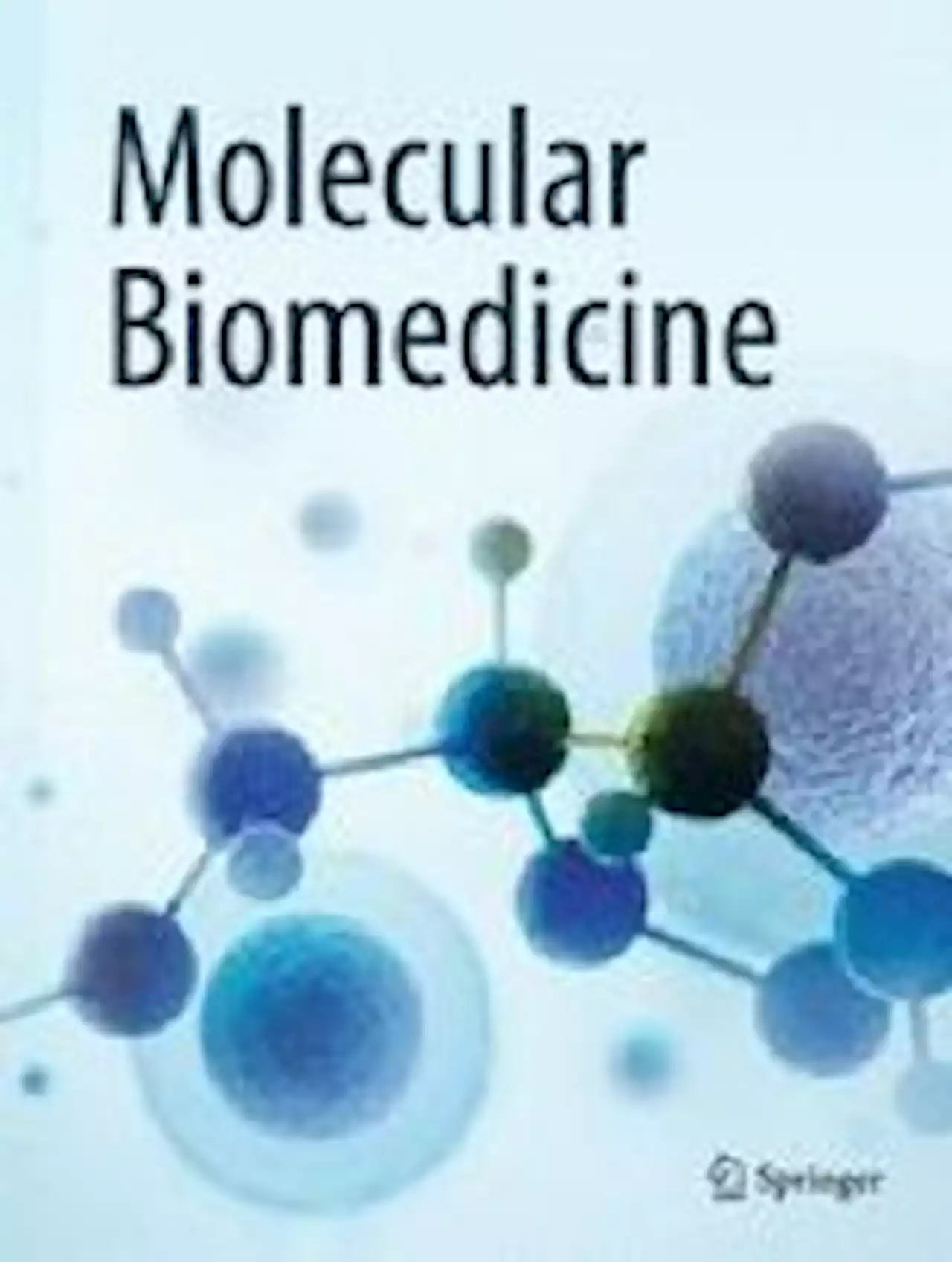Gut microbes disturbed by COVID-19 infection, especially with antibiotics RutgersU
] may also impact the gut microbiome. Despite our efforts to minimize such impact and recruit patients who had adopted similar measures by conducting the study at a single site, we recognize the importance of these changes, which could interfere with identifying the direct effects of SARS-CoV-2 on gut dysbiosis.
In conclusion, we present evidence that acute COVID-19 infection can induce gut microbiota dysbiosis with depletion of commensal bacteria, a phenomenon enhanced by antibiotic exposure. Further investigation of patients across the severity gradient in expanded longitudinal cohorts will enhance understanding of the role of the gut microbiome in COVID-19 disease progression and recovery. These findings may help identify microbial targets and probiotic supplements for improving COVID-19 treatment.
All of the medical records of the patients were reviewed to collect demographic characteristics, comorbidities, medical history, COVID-19 duration, and treatment. A questionnaire was used at the time of specimen collection to obtain diet type, antibiotics used in the 6 months prior to study entry, and prior and existing treatment for COVID-19. The use of antibiotics also was recorded during hospitalization.
United Kingdom Latest News, United Kingdom Headlines
Similar News:You can also read news stories similar to this one that we have collected from other news sources.
 Nanoparticles displaying SARS-CoV-1 and SARS-CoV-2 spikes induce broad antibody responses in animal modelNanoparticles displaying SARS-CoV-1 and SARS-CoV-2 spikes induce broad antibody responses in animal model Antibody Nanoparticles SARS SARSCoV2 Coronavirus Disease COVID iScience_CP UW WeillCornell UvA_Amsterdam scrippsresearch
Nanoparticles displaying SARS-CoV-1 and SARS-CoV-2 spikes induce broad antibody responses in animal modelNanoparticles displaying SARS-CoV-1 and SARS-CoV-2 spikes induce broad antibody responses in animal model Antibody Nanoparticles SARS SARSCoV2 Coronavirus Disease COVID iScience_CP UW WeillCornell UvA_Amsterdam scrippsresearch
Read more »
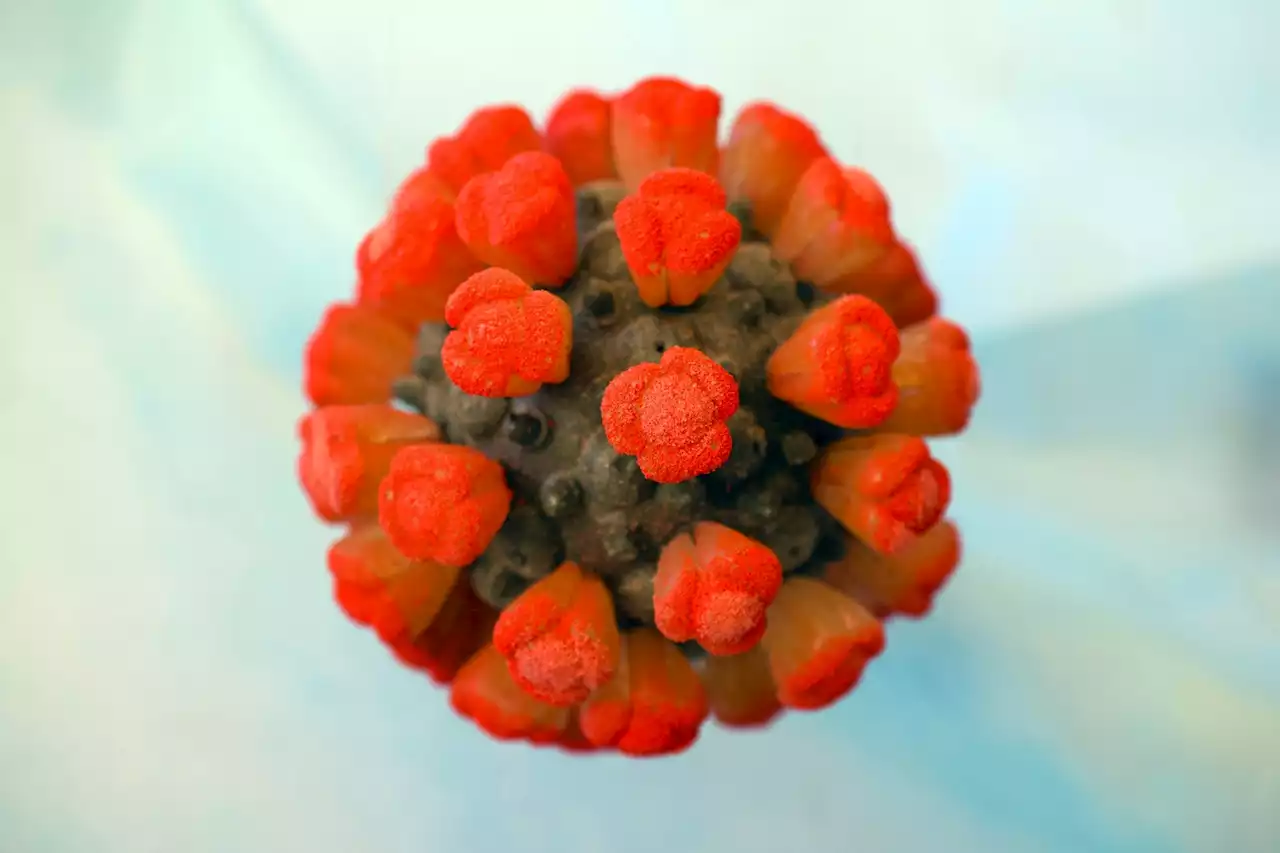 Cryo-electron tomography helps visualize platelet deformation due to SARS-CoV-2 spike proteinResearchers used cellular cryo-electron tomography (cryo-ET) to demonstrate the role of severe acute respiratory syndrome coronavirus 2 (SARS-CoV-2) spike (S) protein in coronavirus disease 2019 (COVID-19)-triggered severe coagulopathies.
Cryo-electron tomography helps visualize platelet deformation due to SARS-CoV-2 spike proteinResearchers used cellular cryo-electron tomography (cryo-ET) to demonstrate the role of severe acute respiratory syndrome coronavirus 2 (SARS-CoV-2) spike (S) protein in coronavirus disease 2019 (COVID-19)-triggered severe coagulopathies.
Read more »
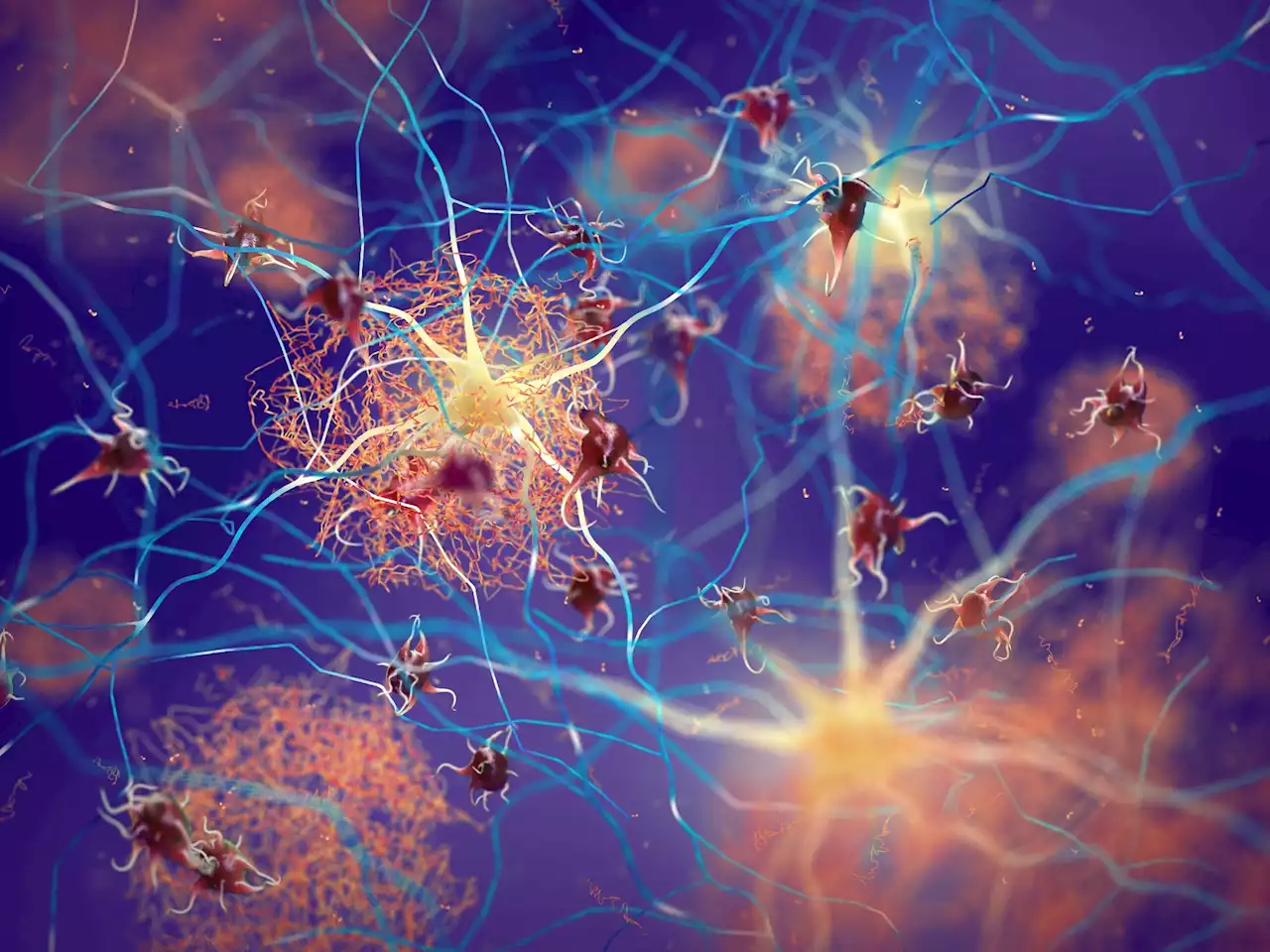 Molecular and cellular similarities identified in the brains of SARS-CoV-2 and Alzheimer's disease patientsResearchers evaluated neuro-pathophysiological consequences of severe acute respiratory syndrome coronavirus 2 (SARS-CoV-2) infection, especially the post-acute sequelae of SARS-CoV-2 (PASC) in Alzheimer’s disease (AD) patients.
Molecular and cellular similarities identified in the brains of SARS-CoV-2 and Alzheimer's disease patientsResearchers evaluated neuro-pathophysiological consequences of severe acute respiratory syndrome coronavirus 2 (SARS-CoV-2) infection, especially the post-acute sequelae of SARS-CoV-2 (PASC) in Alzheimer’s disease (AD) patients.
Read more »
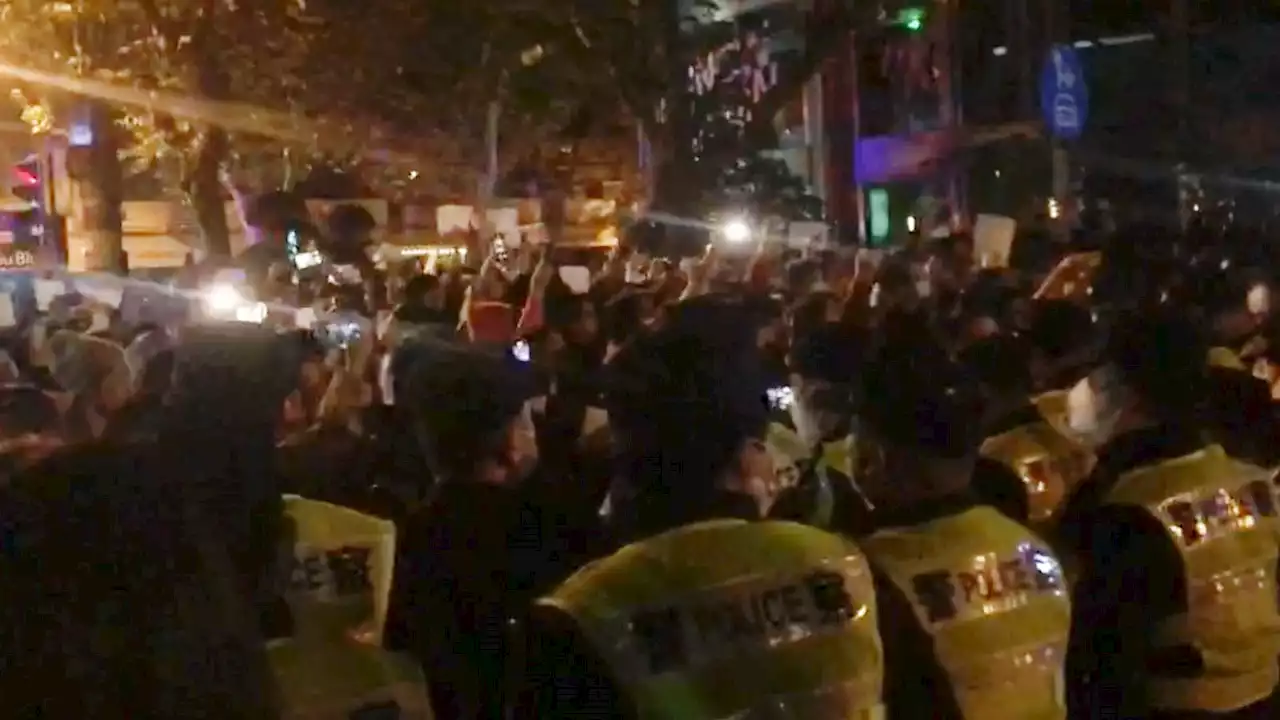 Rare protests in China as fatal fire collides with zero-COVID fatigueChina is the only major country still fighting COVID with lockdowns and mass testing but, after living with extreme restrictions for months, many citizens have had enough.
Rare protests in China as fatal fire collides with zero-COVID fatigueChina is the only major country still fighting COVID with lockdowns and mass testing but, after living with extreme restrictions for months, many citizens have had enough.
Read more »
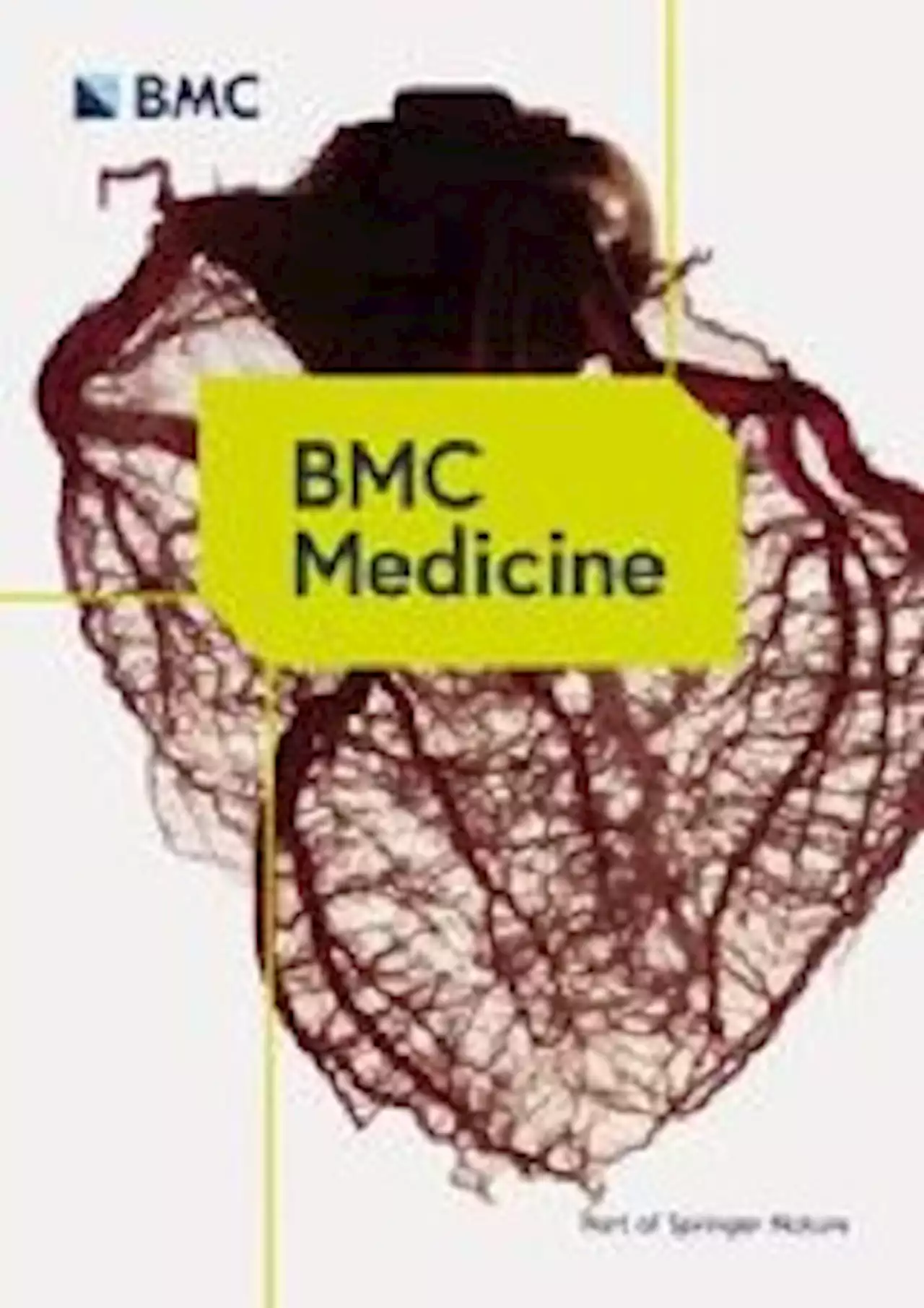 Prednisolone does not improve olfactory function after COVID-19: a randomized, double-blind, placebo-controlled trial - BMC MedicineBackground Prednisolone has been suggested as a treatment for olfactory disorders after COVID-19, but evidence is scarce. Hence, we aimed to determine the efficacy of a short oral prednisolone treatment on patients with persistent olfactory disorders after COVID-19. Methods We performed a randomized, double-blind, placebo-controlled, single-centered trial in the Netherlands. Patients were included if they were | 18 years old and if they had persistent (| 4 weeks) olfactory disorders within 12 weeks after a confirmed COVID-19 test. The treatment group received oral prednisolone 40 mg once daily for 10 days and the placebo group received matching placebo. In addition, all patients performed olfactory training. The primary outcome was the objective olfactory function on Sniffin’ Sticks Test (SST) 12 weeks after the start of treatment, measured in Threshold-Discrimination-Identification (TDI) score. Secondary outcomes were objective gustatory function assessed by the Taste Strip Test (TST) and subjective self-reported outcomes on questionnaires about olfactory, gustatory and trigeminal function, quality of life, and nasal symptoms. The CONSORT 2010 guideline was performed. Results Between November 2021 and February 2022, we included 115 eligible patients, randomly assigned to the treatment (n = 58) or placebo group (n = 57). No difference in olfactory function between groups was obtained after 12 weeks. Median TDI score on SST was 26.8 (IQR 23.6–29.3) in the placebo group and 28.8 (IQR 24.0–30.9) in the prednisolone group, with a median difference of 2.0 (95% CI 0.75 to 1.5). There was similar improvement on olfactory function in both groups after 12 weeks. Furthermore, on secondary outcomes, we obtained no differences between groups. Conclusions This trial shows that prednisolone does not improve olfactory function after COVID-19. Therefore, we recommend not prescribing prednisolone for patients with persistent olfactory disorders after COVID-19. Trial registration Thi
Prednisolone does not improve olfactory function after COVID-19: a randomized, double-blind, placebo-controlled trial - BMC MedicineBackground Prednisolone has been suggested as a treatment for olfactory disorders after COVID-19, but evidence is scarce. Hence, we aimed to determine the efficacy of a short oral prednisolone treatment on patients with persistent olfactory disorders after COVID-19. Methods We performed a randomized, double-blind, placebo-controlled, single-centered trial in the Netherlands. Patients were included if they were | 18 years old and if they had persistent (| 4 weeks) olfactory disorders within 12 weeks after a confirmed COVID-19 test. The treatment group received oral prednisolone 40 mg once daily for 10 days and the placebo group received matching placebo. In addition, all patients performed olfactory training. The primary outcome was the objective olfactory function on Sniffin’ Sticks Test (SST) 12 weeks after the start of treatment, measured in Threshold-Discrimination-Identification (TDI) score. Secondary outcomes were objective gustatory function assessed by the Taste Strip Test (TST) and subjective self-reported outcomes on questionnaires about olfactory, gustatory and trigeminal function, quality of life, and nasal symptoms. The CONSORT 2010 guideline was performed. Results Between November 2021 and February 2022, we included 115 eligible patients, randomly assigned to the treatment (n = 58) or placebo group (n = 57). No difference in olfactory function between groups was obtained after 12 weeks. Median TDI score on SST was 26.8 (IQR 23.6–29.3) in the placebo group and 28.8 (IQR 24.0–30.9) in the prednisolone group, with a median difference of 2.0 (95% CI 0.75 to 1.5). There was similar improvement on olfactory function in both groups after 12 weeks. Furthermore, on secondary outcomes, we obtained no differences between groups. Conclusions This trial shows that prednisolone does not improve olfactory function after COVID-19. Therefore, we recommend not prescribing prednisolone for patients with persistent olfactory disorders after COVID-19. Trial registration Thi
Read more »
 Strictly address Kym Marsh's absence from show after testing positive for CovidKym Marsh is sadly absent from tonight's Strictly Come Dancing after testing positive for Covid-19, with the show's team wishing her well at the start of the show
Strictly address Kym Marsh's absence from show after testing positive for CovidKym Marsh is sadly absent from tonight's Strictly Come Dancing after testing positive for Covid-19, with the show's team wishing her well at the start of the show
Read more »
